Einheit 9.8 (online)
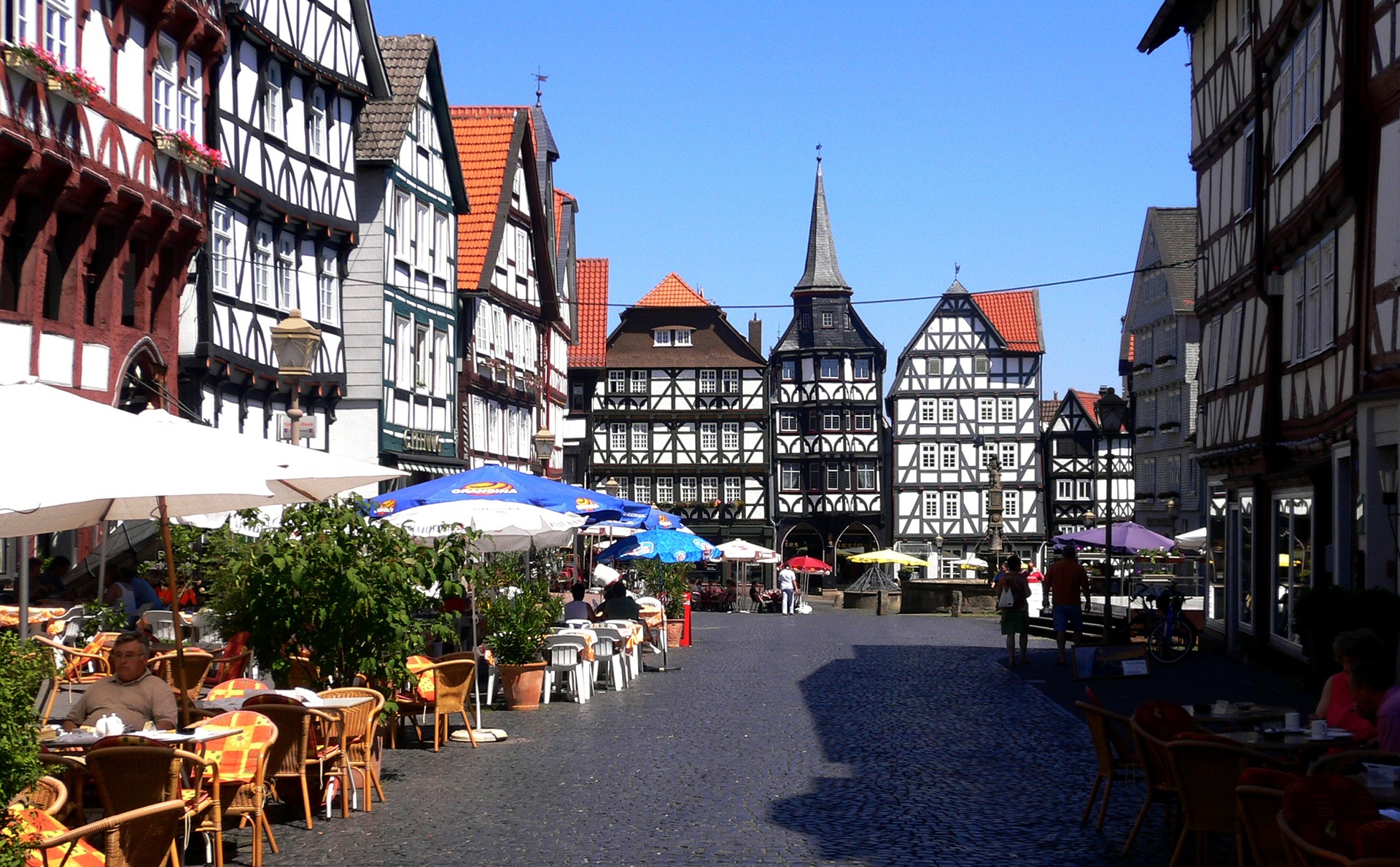 |
Essen Sie gern draußen auf der Terrasse? In Europa gibt es viele Restaurants und Cafés, wo man draußen sitzen kann. |
Im Restaurant
When you go to a restaurant in Germany, there are a couple of things that might surprise you:
Usually, there is no hostess to show you to your seat. You just find our own table where you want to sit.
If there is no free table, it is quite customary to sit together with people you don’t even know. You would go to their table and ask: “Entschuldigung, ist hier noch frei?” and usually they would offer you the free seats: “Ja, bitte schön” (unless they’re expecting more of their friends to arrive).
The server will not come by your table frequently to ask you how your food is.
When you pay, you only give a small tip as the service charge is included in the bill in the German-speaking countries. Servers get higher hourly wages than in the North American context. Therefore, people usually tip less; you just round up to the nearest currency unit (9 Euro 20 -> you would give 10 Euro), or if the bill is larger, you round up and add a couple of Euros (37 Euro 40 -> you would give 40 Euros).
![]() Übung 1
Übung 1
[h5p id=”227″]
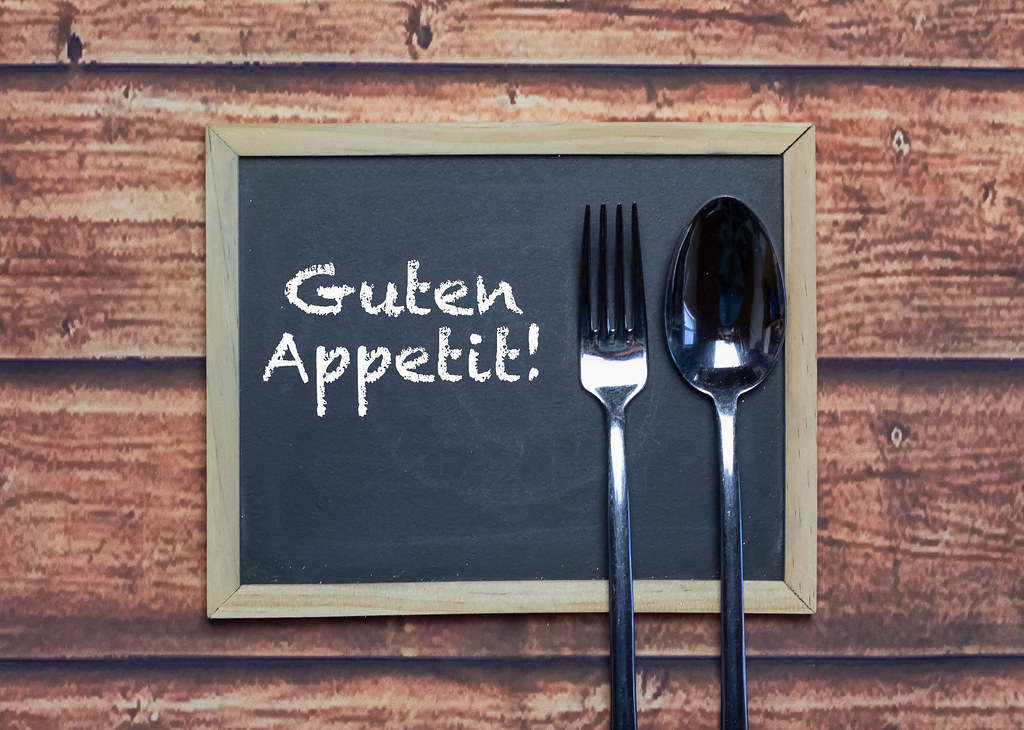
Redemittel
Im Restaurant
| die Bedienung (die Kellnerin/der Kellner) | der Gast (die Kundin/der Kunde) |
nach Wünschen fragen:
|
etwas bestellen:
|
sich entschuldigen:
|
sich über etwas beschweren:
|
sich über das Essen erkundigen:
|
das Essen kommentieren:
|
zahlen:
|
zahlen:
|
![]() Übung 2
Übung 2
[h5p id=”228″]
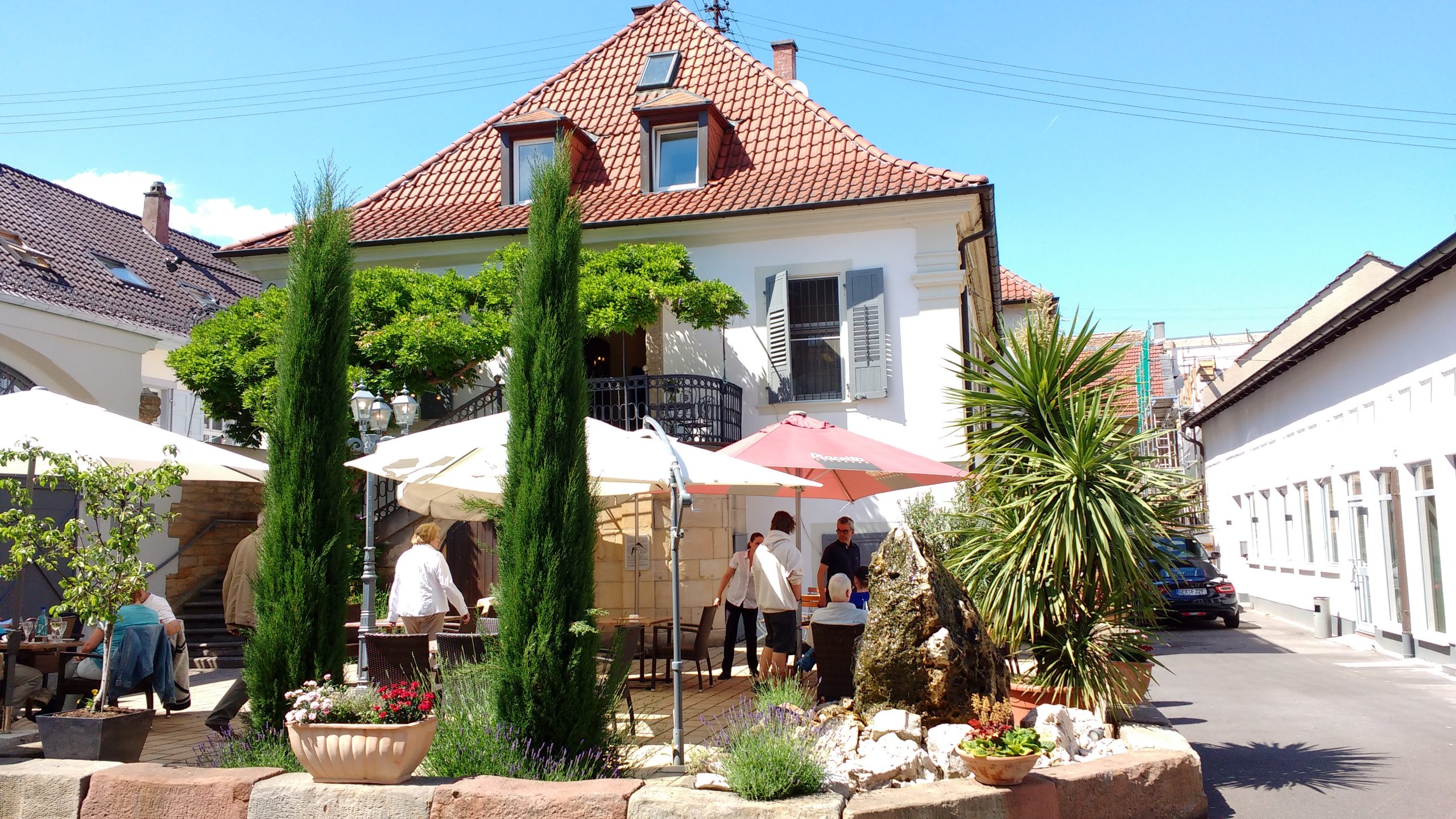
Restaurant Ungeheuer |
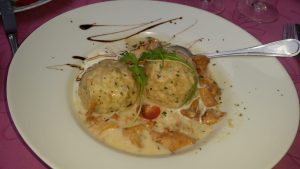
Semmelknödel mit Pfifferlingen |
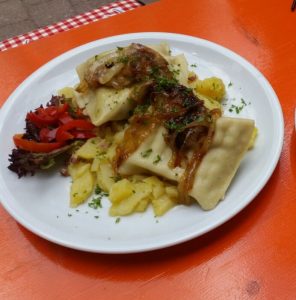
die Maultaschen |
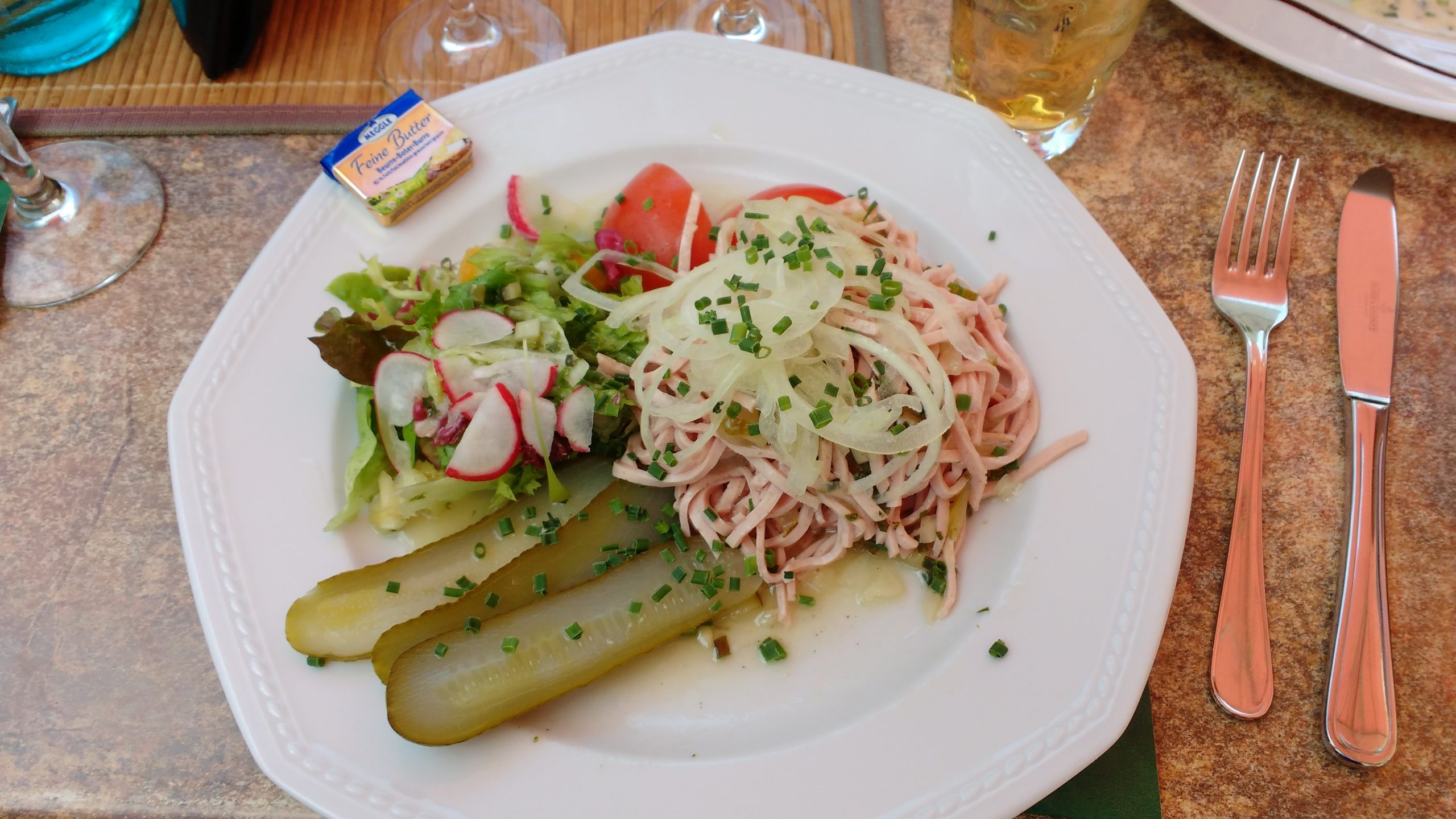
der Wurstsalat |
![]() Im Restaurant Ungeheuer in Forst (Pfalz).
Im Restaurant Ungeheuer in Forst (Pfalz).
[h5p id=”229″]
![]() Grammatik
Grammatik
Future Tense
We have already used the verb werden as equivalent to the English verb “to become”:
Wenn ich groß bin, werde ich Pilotin. (When I’m grown up, I’ll become a pilot.)
Werden + infinitive is used to talk about the future:
Wirst du heute Abend zu Hause essen? (Will you eat at home tonight?)
Nein, ich werde in mein Lieblingsrestaurant gehen. (No, I will go to my favourite restaurant.)
When there is an adverb of time in a sentence and it is clear that future actions or events are indicated, German speakers usually just use the present tense:
Nächstes Jahr fahre ich nach Spanien. (Next year, I’m going to Spain.)
Morgen besucht Thomas seine Eltern. (Tomorrow, Thomas is going to visit his parents.)
The verb werden has to be conjugated and placed in the appropriate position in the sentence, while the infinitive goes to the end of the sentence:
Ich werde am Sonntag ins Restaurant gehen.
Am Sonntag werde ich ins Restaurant gehen.
In a dependent clause, it goes to the end of the dependent clause:
Ich weiß nicht, wann ich wieder in ein Restaurant gehen werde.
| singular | plural |
| ich werde | wir werden |
| du wirst | ihr werdet |
| er/sie/es wird | sie/Sie werden |
![]() Wortschatz in Quizlet:
Wortschatz in Quizlet:
![]() Take Quiz 3 on Canvas.
Take Quiz 3 on Canvas.
Media Attributions
- summer-1277076_1920
- star
- Guten Appetit
- Semmelknödel mit Pfifferlingen
- Maultaschen
- headphones
- light-bulb
- check mark
to order
to complain
to ask about something
pleased, satisfied
